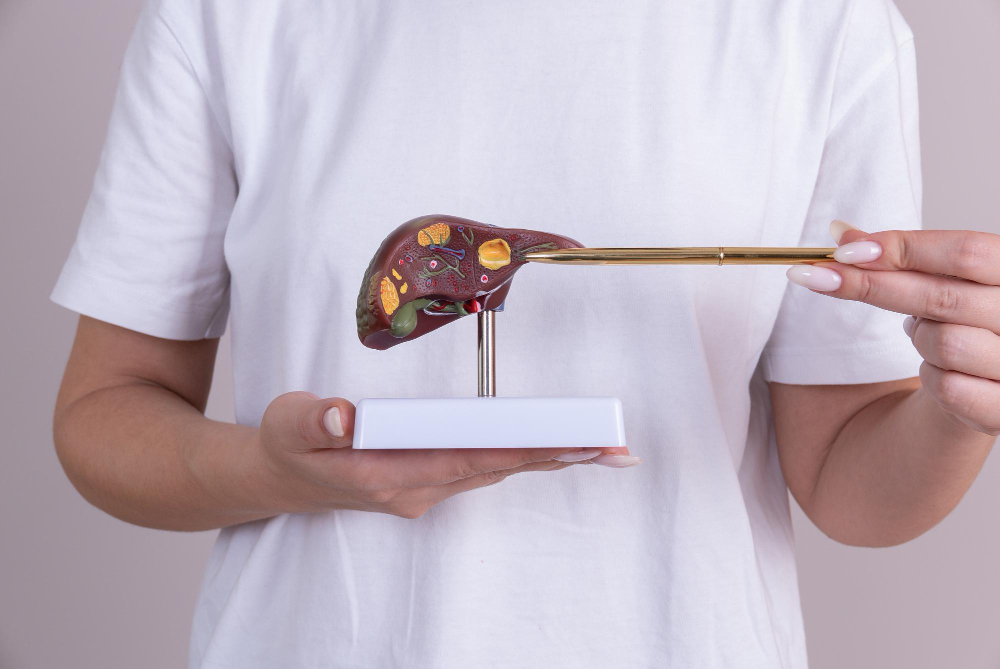Primary biliary cholangitis (PBC) is a progressive autoimmune liver disorder that leads to inflammation and damage in the small bile ducts in the liver. When the condition goes untreated or undetected, it might result in excessive scarring of the liver, hepatic failure, and the need for a liver transplant, making it crucial to realize the risk factors and indications surrounding the condition. The condition was previously known as “primary biliary cirrhosis” but PBC medical experts and patient advocacy groups elected to change the name in 2015. A number of patients affected by the disease believed that referring to it as cirrhosis caused an incorrect connection with alcohol consumption and was often misleading given that the majority of individuals with PBC do not have advanced liver damage (cirrhosis).
Am I at risk for PBC?
Women over 40 are most likely to develop PBC. In fact, it’s estimated that the condition impacts one in 1,000 women over the age of 40. Although men can get primary biliary cholangitis as well, about 90% of people having the condition are women. PBC may be prevalent within some families, and an individual might be at an elevated risk if they have a parent, child, or sibling who is also affected by the liver disease. In addition, no less than 50% of individuals with primary biliary cholangitis additionally have another autoimmune disease. Patients impacted by health problems, such as Sjogren’s syndrome, Raynaud’s phenomenon, and autoimmune thyroid disease, should be especially cognizant of their health. The actual source of PBC is not apparent, but PBC is not a result of alcohol consumption and is not contagious.
The symptoms and indications of PBC
Among some patients, primary biliary cholangitis can take years to exhibit symptoms. Many symptoms of the liver disease are similar to those of other health problems, making it challenging for physicians to diagnose. Oftentimes, people who have primary biliary cholangitis are diagnosed when indications of liver damage are identified during routine liver testing. Periodic lab testing is a common method to assess the function of the liver and often involves measuring:
- albumin
- alkaline phosphatase (ALP)
- alanine aminotransferase (ALT)
- prothrombin time (PT)
- aspartate aminotransferase (AST)
- gamma-glutamyl transpeptidase (GGT)
- bilirubin
Amongst patients who experience symptoms of PBC, the most common signs include fatigue and itching (sometimes called pruritus).
How is PBC identified?
One of the vital health aspects doctors first look at to detect primary biliary cholangitis is a person’s alkaline phosphatase (ALP) readings.
- An unusually high level of ALP could be a sign of damage in the liver.
- ALP, which is at times called “alk phos,” is an enzyme present in the body.
- In the initial phases of PBC, unusually elevated alkaline phosphatase could be an early indication to healthcare providers that primary biliary cholangitis is occurring.
It’s also vital to test for AMAs (antimitochondrial antibodies) in cases where primary biliary cholangitis is likely.
- Antimitochondrial antibodies are immunoglobulins produced by the body’s immune system.
- The presence of antimitochondrial antibodies is a sign of primary biliary cholangitis.
Some doctors carry out a liver biopsy to confirm a primary biliary cholangitis diagnosis and to gauge disease progression. However, biopsy procedures are typically not necessary to diagnose PBC.
Treating PBC
To date, there is no way to reverse primary biliary cholangitis, but two medications have been approved in the United States to help manage the condition and minimize further harm to the liver. Medical health standards suggest that practitioners examine ALP levels in those living with primary biliary cholangitis on a 3 to 6-month basis to follow the advancement of the disease and determine to what degree medication therapy is proving effective. Because PBC isn’t a common medical concern, a fair number of people request help from gastrointestinal doctors and hepatologists who have advanced training in treating liver disease.
Find hope and support in the PBC community
September is Primary Biliary Cholangitis Awareness Month, and Sunday, September 12th is International Primary Biliary Cholangitis Day. If you or a family member are dealing with primary biliary cholangitis, now is a great time to understand your options. This also provides an opportunity for people who have the liver problem to acknowledge the achievements of the primary biliary cholangitis community and expand the understanding surrounding PBC. To find out more, reach out to a GI Alliance location near your today. You can schedule a consultation with one of our board-certified gastroenterologists to determine your risk of primary biliary cholangitis and inquire about ALP testing.


